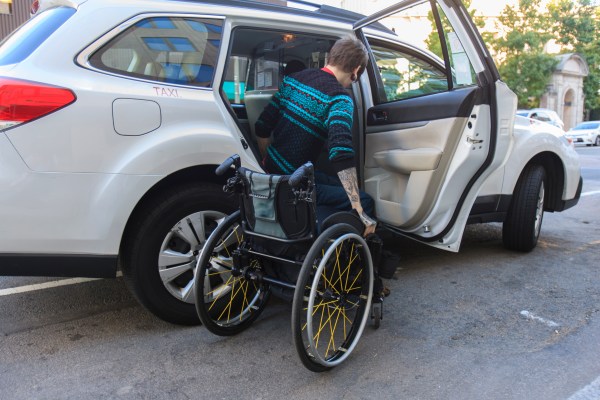Uber to pay for overcharging people with disabilities – TechCrunch

Uber has agreed to settle a lawsuit alleging that the ride-hail company violated the Americans with Disabilities Act (ADA) by overcharging riders with disabilities. The company will offer several million dollars in compensation to more than 65,000 Uber users who were “charged discriminatory fees due to disability,” according to a statement from the United States Department of Justice.
The DOJ originally filed a lawsuit in November 2021 alleging that Uber had violated Title III of the ADA, which prohibits discrimination by private transportation companies. Rather than take the claims to court, Uber agreed to credit the accounts of the eligible riders for double the amount of wait-time fees they were ever charged, which could total potentially hundreds of thousands or millions of dollars in compensation. The company will also pay $1,738,500 to 1,000 riders who complained to Uber about being charged wait-time fees because of disability, and another $500,000 to other affected individuals.
Uber’s agreement to settle this case means more than getting justice for people with disabilities who have suffered discrimination. It is also yet another case of Uber being forced to settle a dispute that identifies the ride-hail giant as a transportation company, rather than just a platform that connects independent drivers with riders, as Uber has tried to define itself in the past. For example, in February, Uber settled a class action lawsuit from California drivers, paying $8.4 million for misclassifying them as contractors rather than employees. By conceding to a lawful definition that requires Uber to follow laws like the ADA, Uber also travels farther down the path of treating its drivers like employees.
According to the DOJ’s complaint, Uber began charging passengers wait-time fees in a number of cities before expanding nationwide in April 2016. The fees would start up once the driver had been at the pickup spot for two minutes and continue until the ride started. Two minutes is not a long time for a person with a disability, who may be navigating with a wheelchair or a walker that needs to be broken down and stored in the car, or may be blind and need more time to reach the pickup location.
The lawsuit says that even when Uber was aware of a passenger’s need for more time due to disability, the company continued to charge a wait-time fee.
“People with disabilities should not be made to feel like second-class citizens or punished because of their disability, which is exactly what Uber’s wait-time fee policy did,” said assistant attorney general Kristen Clarke of the DOJ’s Civil Rights Division. “This agreement sends a strong message that Uber and other ridesharing companies will be held accountable if their services discriminate against people with disabilities.”
In addition to paying monetary fees, Uber has agreed to waive wait-time fees for all riders who certify that they or one of their party will need additional time to get in an Uber because of disability. It has also agreed to advertise this fee-waiver program and ensure its customer service team is ready to refund anyone who doesn’t have a waiver and is charged a wait-time fee because of disability.
Uber did not respond in time to questions about how the fee-waiver program would affect drivers, and if they will be compensated by Uber directly in cases where they must wait more than two minutes for a person with disability.
Last week, Uber got in hot water for its past tactics for expansion when a former Uber lobbyist leaked thousands of confidential documents. The Uber Files, as they are now known, reveal a history of Uber partaking in secret lobbying, lawbreaking and exploiting drivers. Uber is also currently facing a lawsuit from at least dozens of women who had been sexually assaulted by drivers.



